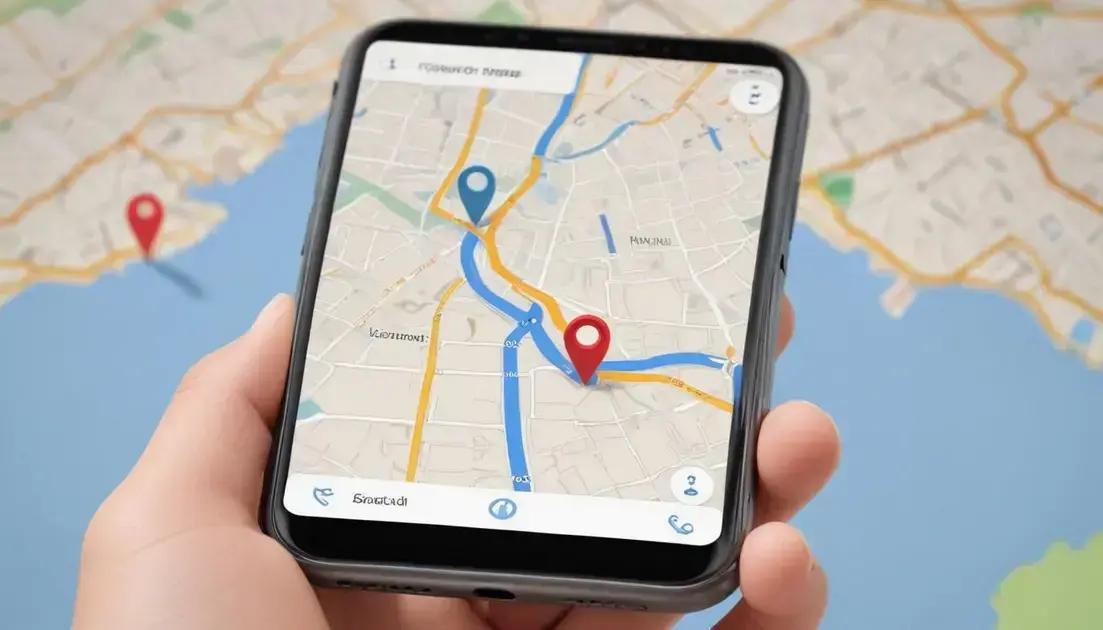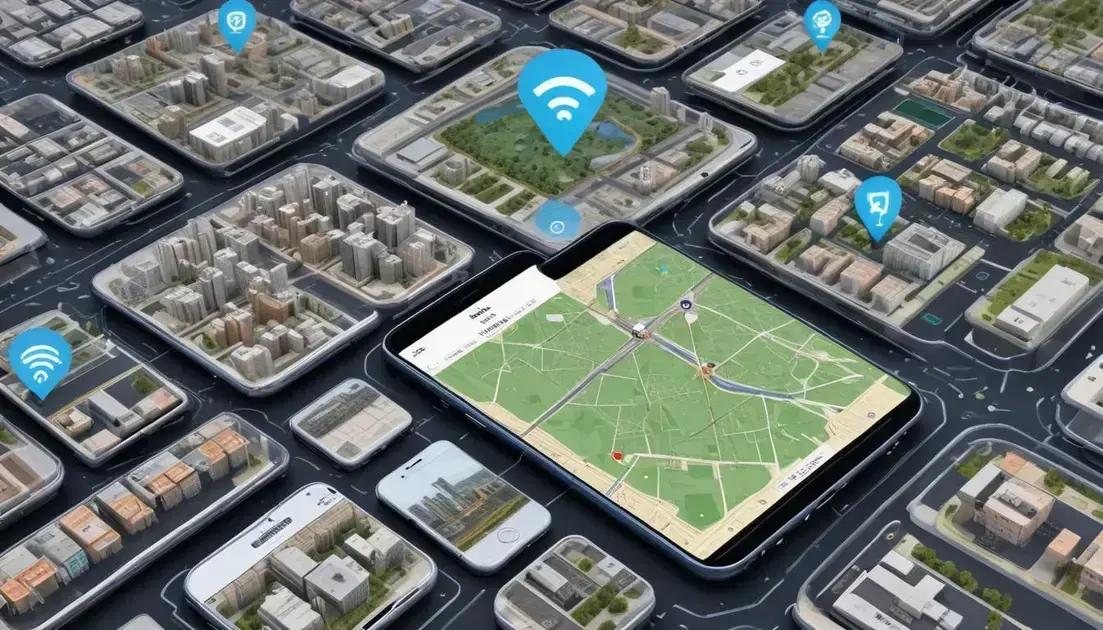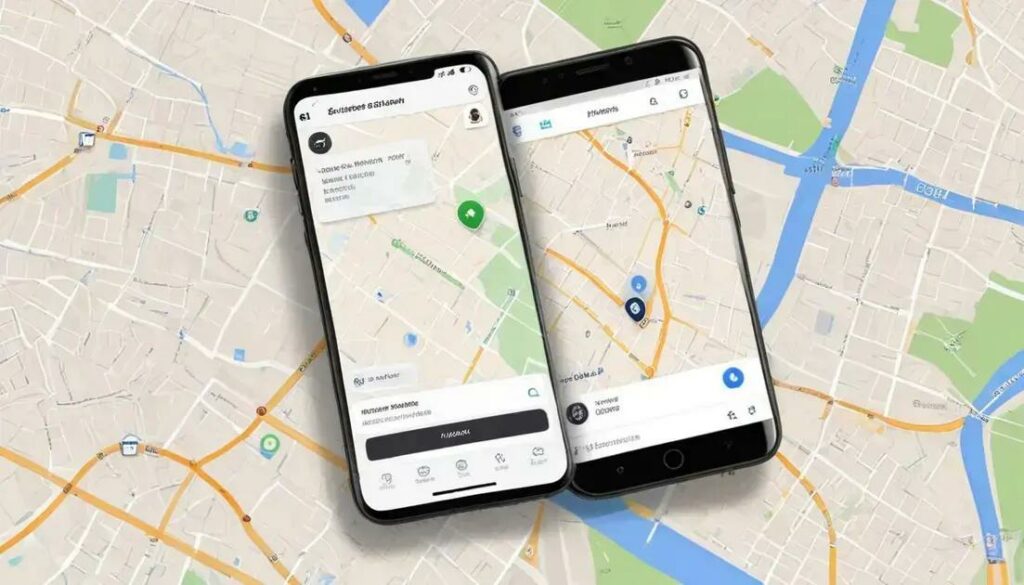Address lookup is a critical aspect of geolocation apps, bridging the gap between GPS coordinates and human-readable addresses. Curious how it all works? Let’s explore!
Address Lookup and Its Significance
Address lookup plays a crucial role in many applications we use daily. Whether you’re ordering food or hailing a ride, accurate addresses make everything flow smoothly. Without effective address lookup, mistakes can happen, leading to delays and confusion.
So, what exactly is address lookup? Simply put, it’s the process of converting a location’s coordinates into a human-readable address. This is important because most people search for places using addresses, not GPS numbers.
How does it work? Typically, when you enter an address, the app uses a database to find and match the coordinates. In real-time, this ensures you get the right place on the map. This accuracy is essential for navigating busy streets or tracking deliveries.
Why is this significant? First, accuracy improves user experience. If an address lookup is correct, users feel confident in the service they’re using. Second, businesses benefit too. A simple wrong address can mean lost sales or increased service costs.
Also, as technology advances, many applications now integrate address lookup tools. These can help enhance location tracking and make services more personalized. Adaptive suggestions based on previous searches can create a smoother experience for users.
In summary, address lookup is not just a backend function; it’s a key player in how we interact with apps daily. Its importance cannot be stressed enough in today’s fast-paced digital world.
Geolocation Apps: Core Functions

Geolocation apps are popular tools that help us find our way around. They use GPS to determine where you are. This technology turns your phone into a powerful navigation device.
One of the main functions of these apps is to provide directions. You enter a starting point and a destination. In seconds, the app shows you the best route. This can save time and reduce stress when traveling.
Another important function is location sharing. You can send your current location to friends or family. This helps others find you easily. It’s especially useful in crowded places or during meetups.
Geolocation apps also customize recommendations based on your location. If you’re near a cafe or a store, the app might suggest it. This feature can enhance your experience while exploring new areas.
Additionally, many geolocation apps include features like traffic updates. Real-time data lets you know if there are delays or roadblocks. This helps you adjust your route quickly and avoid frustration.
Lastly, location history is a feature in some apps. This can help track where you’ve been, making it useful for planning future trips or remembering favorite spots. Overall, these core functions make geolocation apps an essential part of our daily lives.
Importance of Accuracy in Address Validation
Address validation is all about making sure the address you have is correct. It’s important because small mistakes can lead to big problems. A wrong address can delay deliveries or send packages to the wrong place.
Accurate address validation helps businesses build trust. Customers expect their orders to arrive on time. When an address is valid, it means fewer errors and improved service. This can lead to happier customers, which is always a good thing.
Another reason accuracy matters is cost savings. Incorrect addresses can waste money. Imagine sending a package back and forth because of a mistake. Each return adds to costs. Validating addresses helps reduce these extra expenses.
Furthermore, in industries like healthcare or emergency services, accurate addresses can save lives. An ambulance needs to arrive at the right location quickly. Address validation ensures that they can find you without delays.
Lastly, companies often use data analysis to improve services. Having valid addresses means they can analyze customer trends more effectively. This leads to better strategies and services tailored to what customers really want.
Technological Approaches to Location-Based Apps

Location-based apps use various technologies to provide users with useful services. One main technology is GPS. GPS helps determine a user’s exact position. This is crucial for navigation and finding places easily.
Another approach involves Wi-Fi signals. When GPS can’t reach a location, like indoors, Wi-Fi helps. It measures distances to nearby routers to locate users accurately.
Beacons are also used in location-based apps. These small devices send signals to smartphones to provide information. For example, a store can send offers to customers when they are nearby.
Mobile data is another helpful technology. It uses cell towers to estimate location. This works well when GPS signals are weak. It’s less precise but still useful for many applications.
More advanced approaches use machine learning. By analyzing data from users, apps can learn patterns. This allows them to offer tailored recommendations based on user behavior.
All these technologies combine to make location-based apps smarter and more efficient. They enhance user experience by providing real-time, relevant information that makes life easier.
Privacy and Security Considerations for Geo Apps
Privacy and security are big concerns for geo apps. These apps track your location, which can feel intrusive. Users need to understand how their data is used.
First, it’s important for users to know what data is collected. Many apps collect more information than necessary. This might include your movements, locations visited, or even personal details.
Next, users should check the app’s privacy settings. Some apps allow you to limit data sharing. You can choose how much information you want to share and with whom.
Data encryption is another key aspect of security. This means your location data is scrambled when sent. If someone tries to intercept it, they can’t read it. This helps keep your information safe.
Moreover, companies should be transparent about their policies. Users should easily find and read privacy policies. This makes it clear how the company protects user data and what they do with it.
Finally, users should update their apps regularly. Updates often include security fixes that protect against new threats. Keeping software updated ensures better privacy and security for the user.
Practical Tips for Developers of Geolocation Applications

Creating effective geolocation applications requires careful planning. Here are some practical tips for developers.
First, always prioritize user privacy. Let users know what information you’ll collect. Be clear about how you will use their data. This builds trust and improves user experience.
Second, optimize location accuracy. Use a mix of GPS, Wi-Fi, and mobile data. This ensures your app works well in many environments, including indoors.
Next, focus on a simple user interface. Users appreciate an app that’s easy to navigate. Clear buttons and straightforward functions reduce confusion.
Also, consider adding offline functionality. Not all users have reliable internet access. Allowing users to access basic features without a connection can be very helpful.
Testing is crucial. Regularly check how your app performs. Use real-world scenarios to identify bugs or issues. User feedback can help you improve your app significantly.
Lastly, stay updated with technology trends. The world of geolocation is always changing. Keeping your app updated with the latest features helps you stay competitive.




